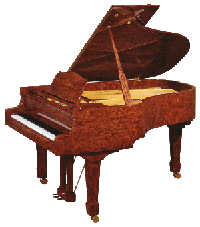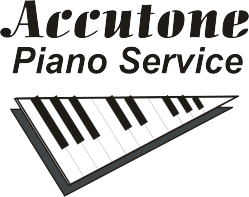Overview: Deciding which way to go is a choice that takes some thought. In the current market, there are a lot of pianos for sale. Craigslist is clogged with pianos for sale, local stores are stocked full of them, and piano owners find the squeeze of economic necessity pushes them to sell the piano to help pay for household expenses. On the other hand, maybe the piano you have has been in the family for a long time, and you'd like to restore it to its original condition.
Rebuilding your piano: If you want to keep the one you have, you'll need to have an estimate of the cost to rebuild it, which could be several thousand dollars. If it's a famous brand like a Steinway, you could end up with a piano worth more than the original purchase price. However you should know that most pianos may not be worth the money you spent if you sold it later.
Replacement choices: If your heart is set on upgrading to a new or better piano, you'll need to consider some options. Maybe you've always wanted a grand piano, so do some measuring and see if it will fit in the space you have. If you want one badly enough, somehow you'll find the right place for it. What kind of decor you have might determine the color or style of cabinet you'd like. On the other hand an upright piano takes a lot less space, and the larger upright pianos can sound even better than many baby grands.
What to look for: The most important advice I can give is, play the piano yourself. You must love the piano, how it plays, and how it sounds. Don't just buy for a name on the fallboard. The larger pianos are going to have a bigger bass sound, and more volume overall. If you can afford a larger piano, go for it. Spend more than you can afford! You'll never regret it. If the touch is too heavy, maybe you need to keep looking. It's not easy to change the touch on a piano, and can be expensive too. Better to find something that you're used to, and that can give you the most control. If you're unsure about which one to buy, ask a friend or a piano teacher to help you choose.
Used vs. New: It's always safer to buy new. You'll have a warrantee, and you won't have to worry about problems that may come up. Paying over time allows you to afford something that otherwise you'd not be able to afford. On the other hand, there are many pianos for sale for much less than the original purchase price, and now that they've been in use for a while, most of the potential problems are worked out. And there are no sales taxes to pay. As I said before, there are many deals out there that only a few years ago would be unthinkable. Even from dealers, bargains can be had both in new and used pianos.
Pre-Purchase Inspections: Once you find the piano you like, and that fits your budget, be sure to have it inspected for possible problems or defects. You can make an appointment to have it inspected by clicking on the left panel "Select Your Zip Code". You'll see the appointment calendar where you can choose a time and day and where to meet.
Negotiation: Now that you've found the piano of your dreams, it's time to bring out your best negotiation skills. Don't be afraid of making an offer lower than the asking price. Like buying a used car, the sticker price is not the last word. Maybe you can ask for some concession to "sweeten the deal", like free delivery or maybe some free tunings. Dealers are often able to offer these to the piano buyer. If the seller is a piano technician, he can offer you a maintenance plan to cover incidentals or problems that may come up.
Bottom Line: You need to do some soul-searching and homework before you make your decision. Don't be pressured into a sale. It should be a fun experience. Piano sales are a buyer's market nowadays, so relax and enjoy the process. You'll be richly rewarded for your efforts. Good Luck!



